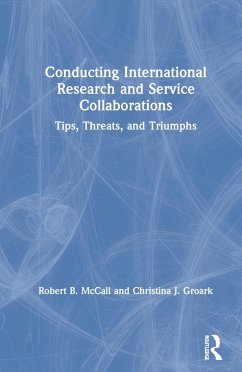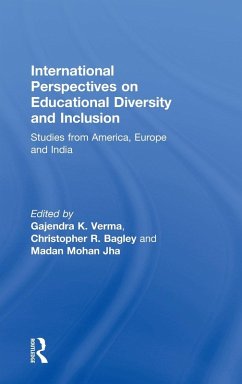
International Research Collaborations
Much to be Gained, Many Ways to Get in Trouble
Herausgeber: Anderson, Melissa S.; Steneck, Nicholas H.
Versandkostenfrei!
Versandfertig in 1-2 Wochen
213,99 €
inkl. MwSt.
Weitere Ausgaben:

PAYBACK Punkte
107 °P sammeln!
Encouraged by their institutions and governments and aided by advances in technology and communication, researchers increasingly pursue international collaborations with high hopes for scientific breakthroughs, intellectual stimulation, access to research equipment and populations, and the satisfaction of global engagement. International Research Collaborations considers what can and does go wrong in cross-national research collaborations, and how scientists can avoid these problems in order to create and sustain productive, mutually-enriching partnerships. Unfamiliar approaches to training, l...
Encouraged by their institutions and governments and aided by advances in technology and communication, researchers increasingly pursue international collaborations with high hopes for scientific breakthroughs, intellectual stimulation, access to research equipment and populations, and the satisfaction of global engagement. International Research Collaborations considers what can and does go wrong in cross-national research collaborations, and how scientists can avoid these problems in order to create and sustain productive, mutually-enriching partnerships. Unfamiliar approaches to training, legal and regulatory complications, and differences in funding and administration pose challenges for collaboration that are then compounded by the need to satisfy the requirements of different research systems. To help today's international researchers create the best possible partnerships, chapters by funding officers, diplomats, attorneys, publishers, regulators, graduate students and postdocs, industry researchers, administrators, and scholars of responsible research address the following key trouble spots: how research is organized and funded the legal and normative environments of research differences in regulation and oversight variation in graduate education and postdoctoral training. International Research Collaborations will provide valuable insights to researchers who are collaborating or who intend to collaborate, as well as to administrators, funders, regulators, editors, and policy-makers involved in cross-national research.














